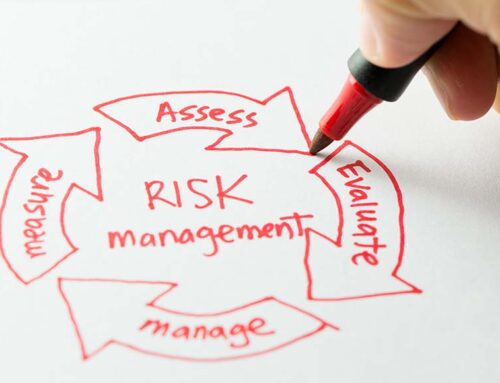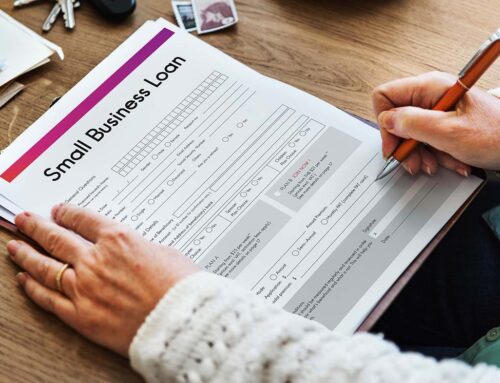 The Coronavirus Aid, Relief, and Economy Security Act (CARES Act) provides relief to self-employed people by delaying the Social Security tax payment due in 2020 for two more years. Specifically, individuals were allowed to defer 50% of the Social Security tax on self-employed income earned from March 27, 2020, through December 31, 2020.
The Coronavirus Aid, Relief, and Economy Security Act (CARES Act) provides relief to self-employed people by delaying the Social Security tax payment due in 2020 for two more years. Specifically, individuals were allowed to defer 50% of the Social Security tax on self-employed income earned from March 27, 2020, through December 31, 2020.
Concerned that many people might have trouble making these payments, the IRS issued an early reminder that half of any deferred Social Security tax is due on December 31, 2021. The other half will come due December 31, 2022.
Self-employed individuals may make these payments anytime on or before the due dates and in various manners, including by check or credit card. They can make payments through the Electronic Federal Tax Payment System, by credit or debit card, money order, or a check.
To ensure they’re applied correctly, the payments should be noted as a “deferred Social Security tax” and made separate from other tax payments.
What should you do if you’re unable to pay in full by the installment due date?
Individuals who can’t pay the entire deferred tax amount should pay whatever they’re able to pay by the installment due dates to limit penalty and interest charges.
If the installment amount isn’t paid in full, the IRS will send the taxpayer a balance due notice. Taxpayers should follow instructions on the notice to make a payment or apply for a payment plan. They can also visit the Paying Your Taxes page on IRS.gov for additional information about ways they can pay, what to do when they can’t pay, and viewing their tax account.
Tax laws are tricky, and the pandemic has made many things more confusing. Give us a call today at (540) 720-5656 so we can talk through strategies that might be beneficial if you’re self-employed.









 Amy Anderson joined the ILG Financial team in 2023 as the client relations coordinator. Her responsibilities include scheduling of appointments, annual check-up notifications, and annuity and required minimum distribution assistance. She is a graduate of Harding University with a degree in Computer Information Systems. Amy and her husband have two children and she enjoys reading, crocheting, music and spending time with her family.
Amy Anderson joined the ILG Financial team in 2023 as the client relations coordinator. Her responsibilities include scheduling of appointments, annual check-up notifications, and annuity and required minimum distribution assistance. She is a graduate of Harding University with a degree in Computer Information Systems. Amy and her husband have two children and she enjoys reading, crocheting, music and spending time with her family. Chase Lopez joined the ILG Financial team in 2020 as an advisor. Chase is a 2016 James Madison University graduate with a degree in management. Chase has been trained under the tutelage of Dave Lopez, who is not only the founder and managing member of ILG Financial, but also is Chase’s uncle and godfather. He also enjoys working alongside his cousin, Megan, who is Dave’s daughter. Chase, as a fiduciary, believes in putting his clients interests first, and building out plans for his clients where they can have a happy and fruitful retirement. He married his beautiful wife in February 2022 and both use most of their free time chasing around their little pup, Aurora.
Chase Lopez joined the ILG Financial team in 2020 as an advisor. Chase is a 2016 James Madison University graduate with a degree in management. Chase has been trained under the tutelage of Dave Lopez, who is not only the founder and managing member of ILG Financial, but also is Chase’s uncle and godfather. He also enjoys working alongside his cousin, Megan, who is Dave’s daughter. Chase, as a fiduciary, believes in putting his clients interests first, and building out plans for his clients where they can have a happy and fruitful retirement. He married his beautiful wife in February 2022 and both use most of their free time chasing around their little pup, Aurora. Jessica Carson joined the ILG Financial team in 2018 as an agent. Jessica and her husband have four children, two dogs, 3 barn cats, 5 chickens, and three parakeets. She indeed loves her children and pets! When not at work, Jessica enjoys playing the piano and cello as well as traveling and spending time outside with her family, hiking, fishing, and boating.
Jessica Carson joined the ILG Financial team in 2018 as an agent. Jessica and her husband have four children, two dogs, 3 barn cats, 5 chickens, and three parakeets. She indeed loves her children and pets! When not at work, Jessica enjoys playing the piano and cello as well as traveling and spending time outside with her family, hiking, fishing, and boating. Terri Center joined the ILG Financial team in 2019 as client services manager. She handles client records, application processing, and gathering information to provide a professional and friendly experience with all of our clients. Terri is a graduate of Oakland University. She is married and has two children. She enjoys hiking, family time, and puzzle challenging video games. She also likes to share her creativity in her canvas paintings and sewing projects.
Terri Center joined the ILG Financial team in 2019 as client services manager. She handles client records, application processing, and gathering information to provide a professional and friendly experience with all of our clients. Terri is a graduate of Oakland University. She is married and has two children. She enjoys hiking, family time, and puzzle challenging video games. She also likes to share her creativity in her canvas paintings and sewing projects. Megan Jones joined the ILG Financial team in 2020 as marketing director. Megan and her husband live in Fredericksburg, VA with their German Short Haired Pointer, Gus. Megan is a graduate of Longwood University and holds a degree in communications. Megan is the oldest of Dave Lopez’s three children and not only enjoys working alongside her father, but also with her cousin, Chase, who joined the ILG Financial team in 2020 as an advisor. When not at work, Megan enjoys sitting on the back porch with family and friends enjoying food and music.
Megan Jones joined the ILG Financial team in 2020 as marketing director. Megan and her husband live in Fredericksburg, VA with their German Short Haired Pointer, Gus. Megan is a graduate of Longwood University and holds a degree in communications. Megan is the oldest of Dave Lopez’s three children and not only enjoys working alongside her father, but also with her cousin, Chase, who joined the ILG Financial team in 2020 as an advisor. When not at work, Megan enjoys sitting on the back porch with family and friends enjoying food and music.